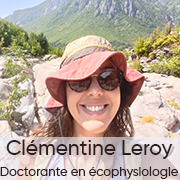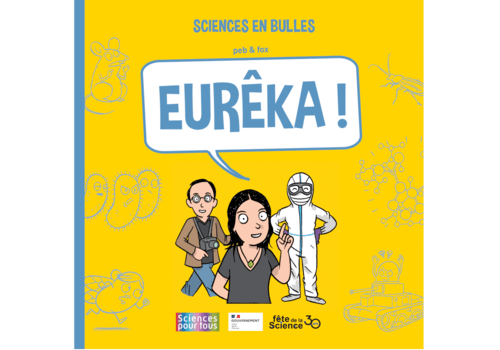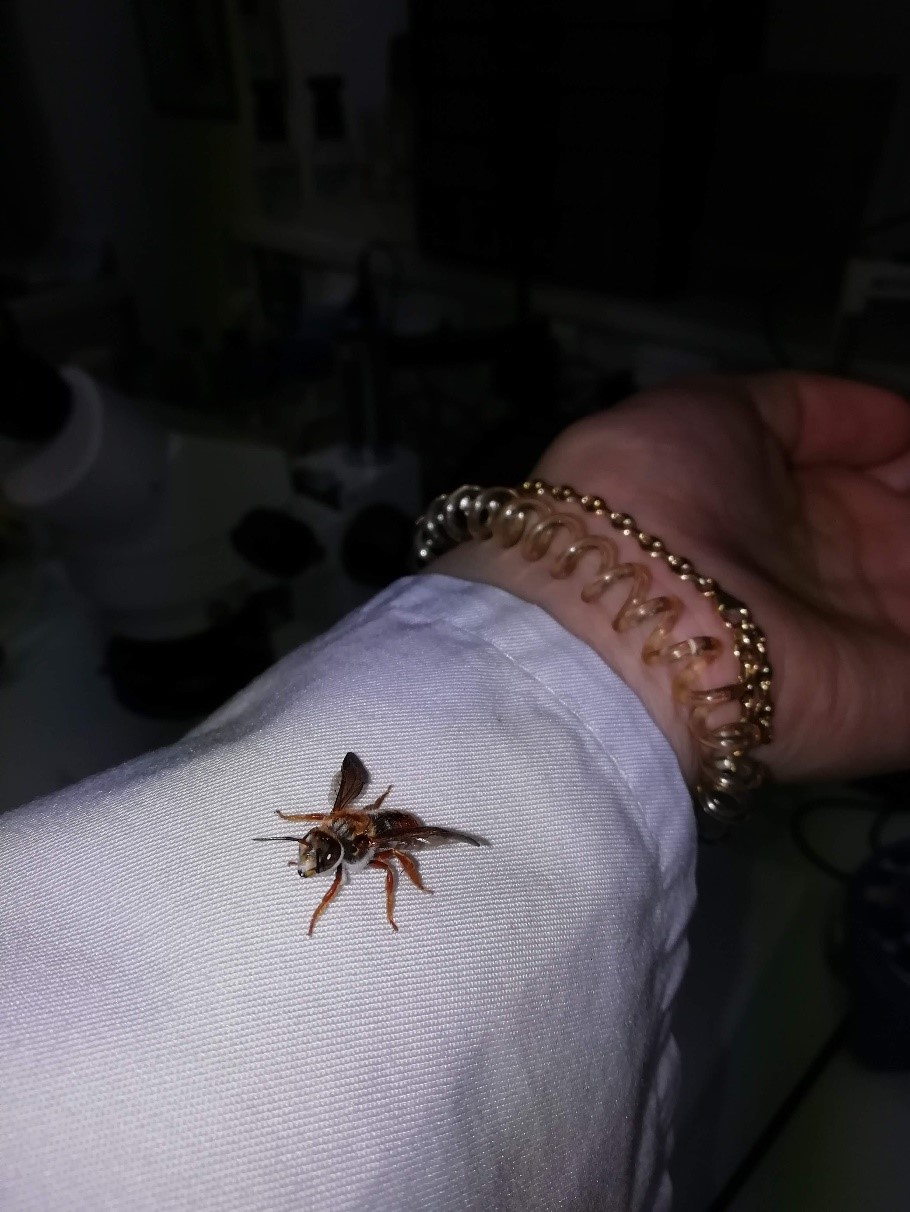[Portrait] Clémentine Leroy, Doctoral student in ecophysiology at the Bees and Environment Laboratory (UR406)
What is your research about?
My work falls within the field ofecophysiology and this, on wild bees. In other words, I am trying, through physiology, to establish bee sensitivity profiles according to both the environment in which they evolve and the resources they have available. To do this, I sample wild bee communities in sites that are more or less disturbed (by grazing, fertilisers, mowing intensity, etc.) and I measure physiological parameters that I try to link to the diversity and quality of floral resources.

What are your current scientific activities?
I am currently completing a paper on the benefits and potential of physiological markers for population dynamics monitoring and conservation initiatives in wild bees. Studies have begun to address these aspects in other taxa, notably the honey bee, which is social, but there is very little data on wild bees, which are, for the most part, solitary.
I am also involved in mediation and outreach activities

I attach great importance to scientific exchanges. I recently participated in the DECLICS initiative, days of scientific exchange between researchers and high school students.
I was lucky enough to be selected for the Sciences en Bulles 2022 competition, which allows doctoral students to summarise their work and life as research students in the form of comic strips.
Why did you choose to work in academic research?
I was initially driven by a keen interest in the field of mutualistic biological interactions, which I found fascinating and on which I was able to present work at university. Then, one thing leading to another, during my first experience in a CNRS laboratory in Dijon as a trainee, I had the opportunity to touch all the disciplines of fundamental research. From creating hypotheses and associated protocols, to setting up experiments, to collecting and analysing data, and finally to writing. I found myself so happy and fulfilled that it was obvious for me to continue my research.
What advice would you give to students who want to do research?
You must make yourself and your tenacity your best allies because no one knows better than you what you are capable of. Don't constantly evaluate yourself, it's not mentions or rankings, however excellent they may be, that will allow you to progress towards your objectives. In order to evolve to make something new, as in research, you have to give yourself the right to make mistakes.
What object or image from your business best illustrates you?

This is a wild bee, a Red Rhodanthidia who lives in the garrigues on the Côte Bleue (Marseille), and who walks quietly on my blouse. Here we witness the reality and beauty of the land inviting itself into the laboratory to teach us and surprise us.
The laboratory
The research unit aims to advance knowledge and promote the search for innovative solutions for the protection of honey bees and the conservation of wild bees in the new context of the Anthropocene.
>> Learn more about the UR406
The portraits
Mis à jour le 22 December 2022